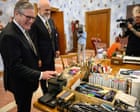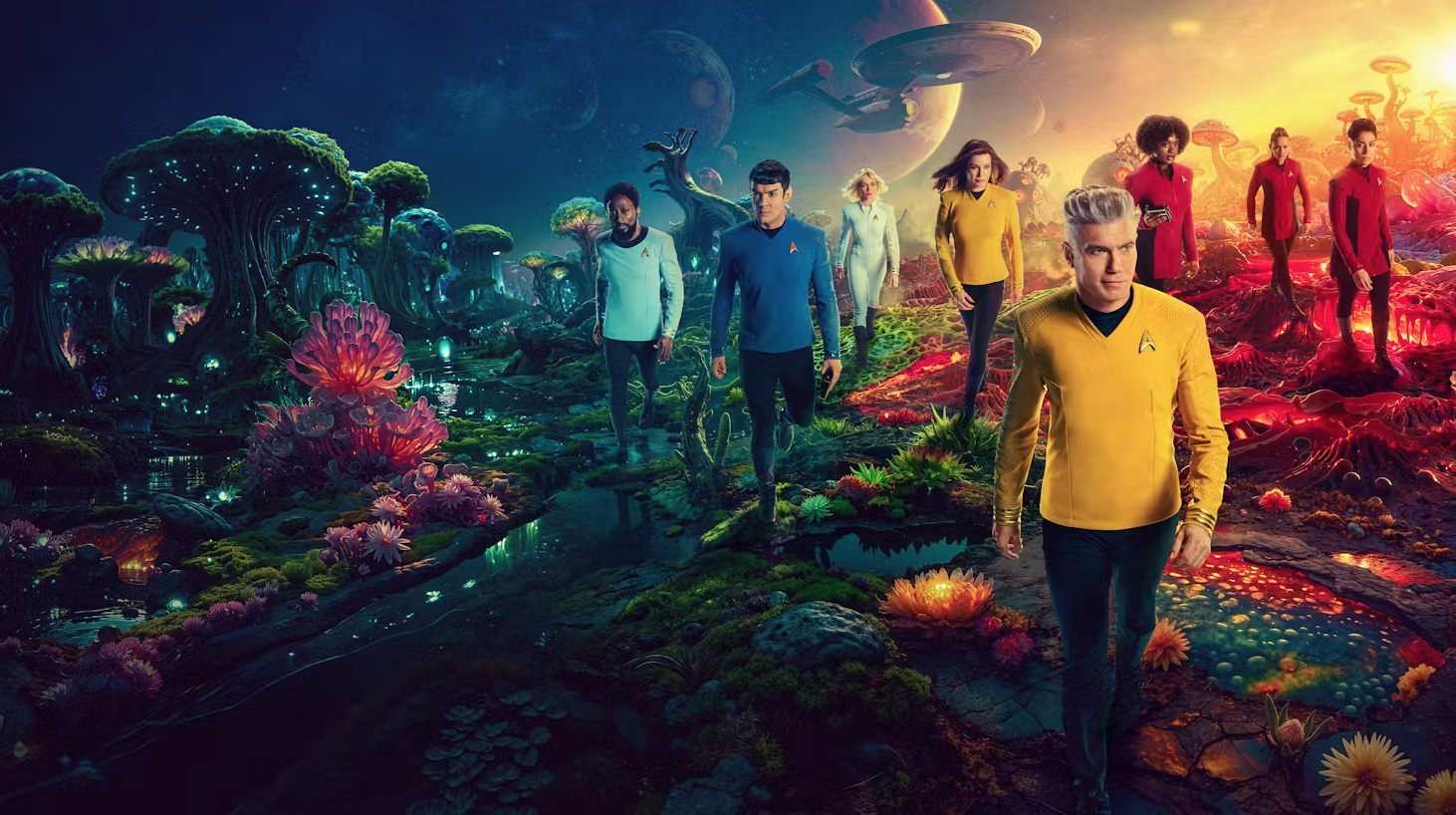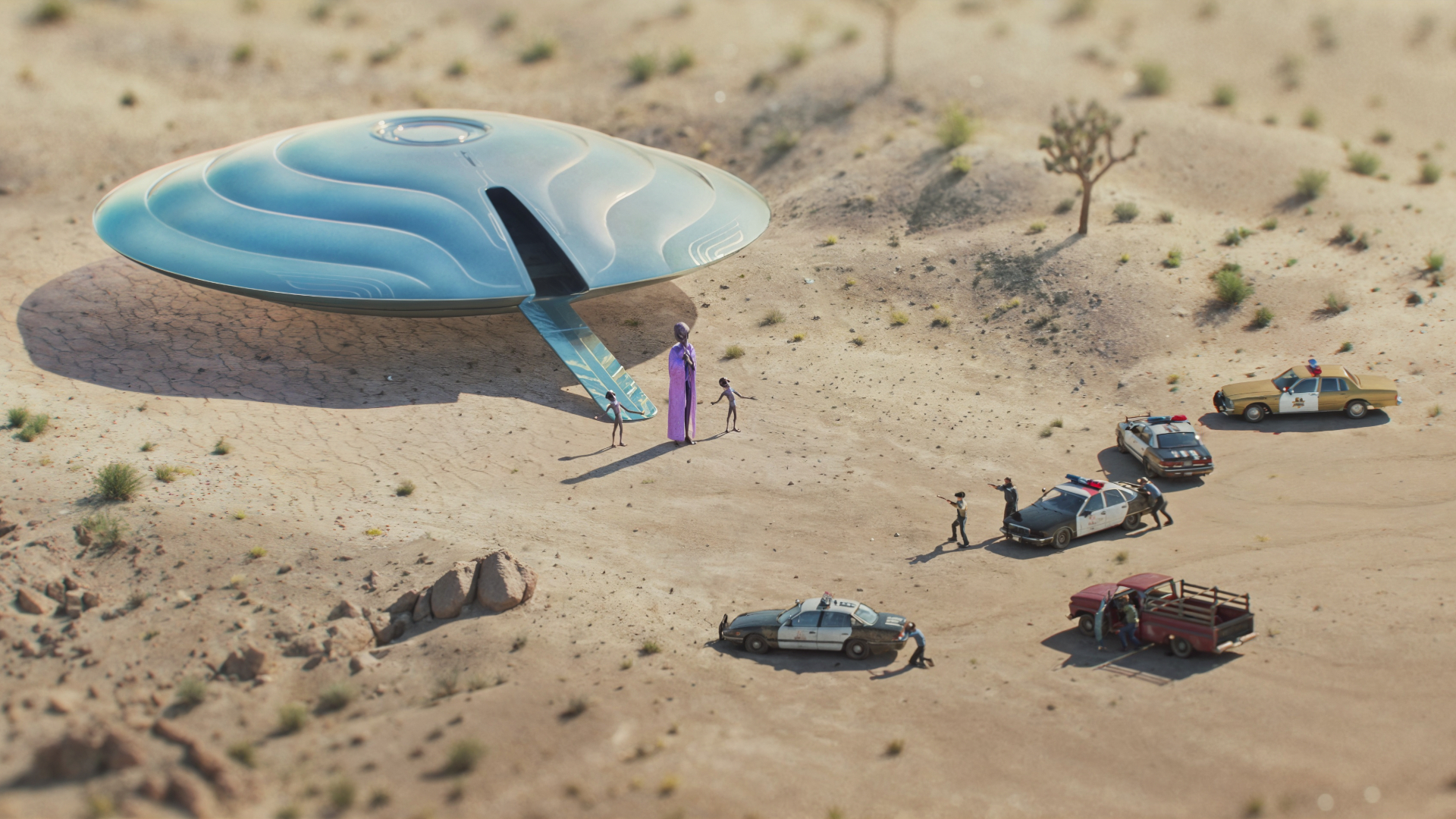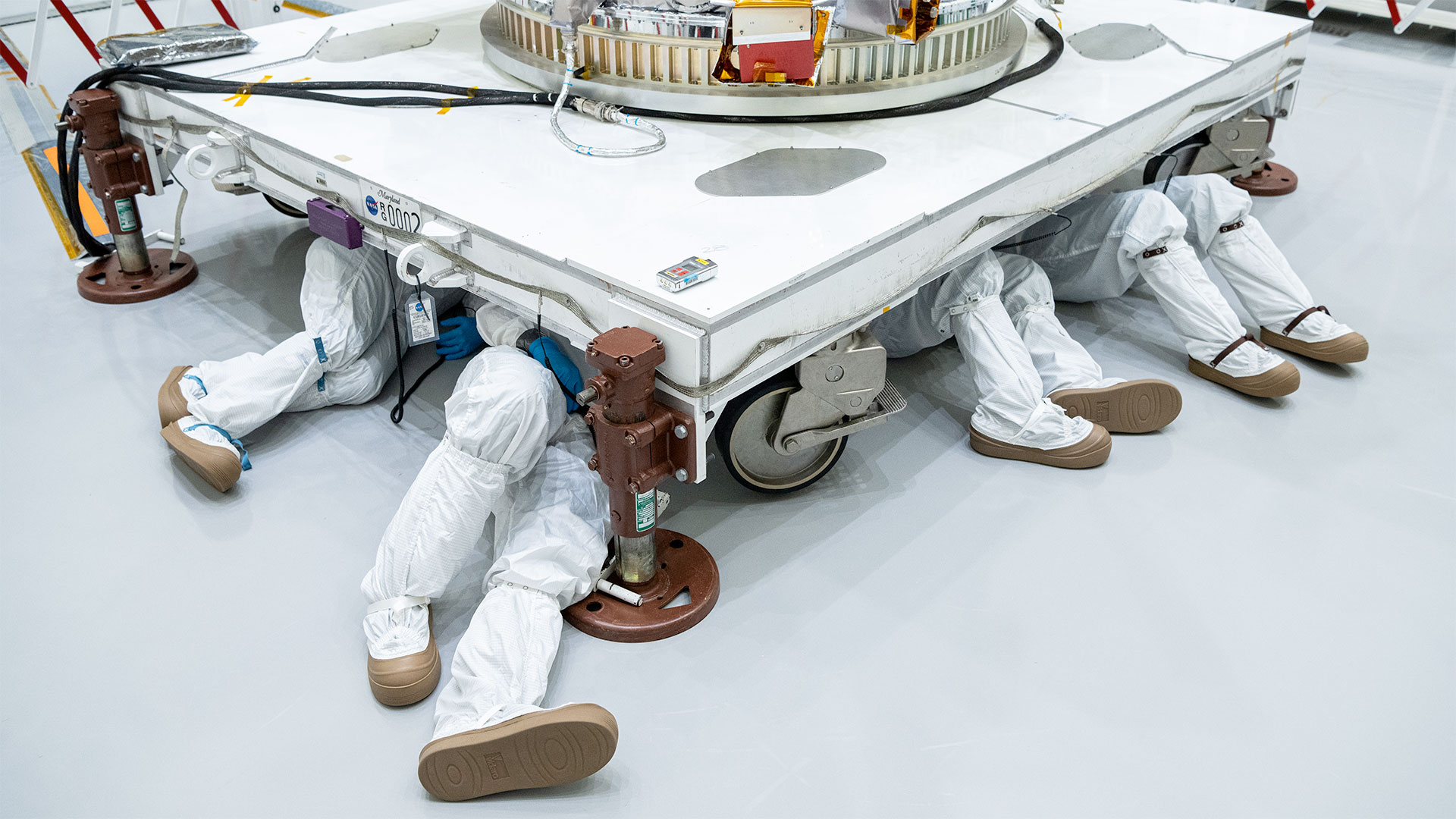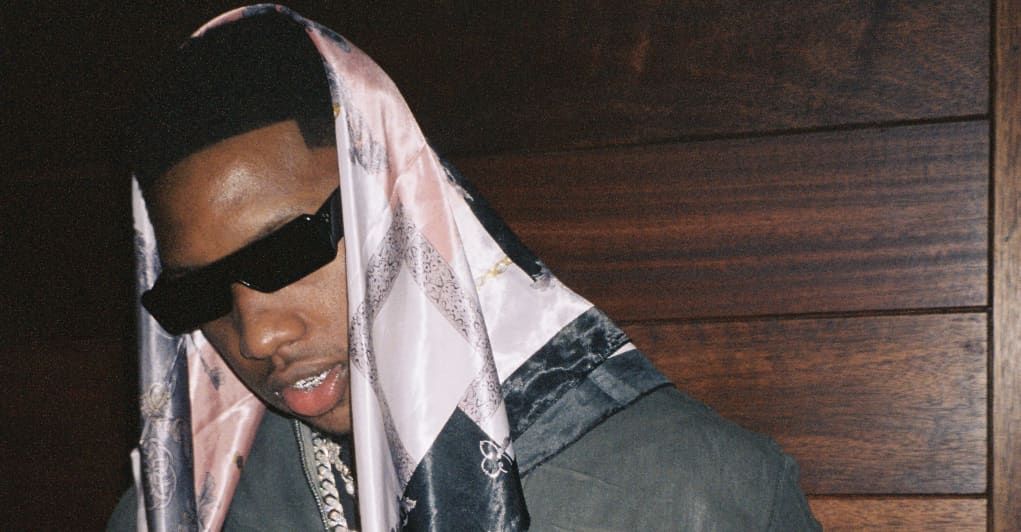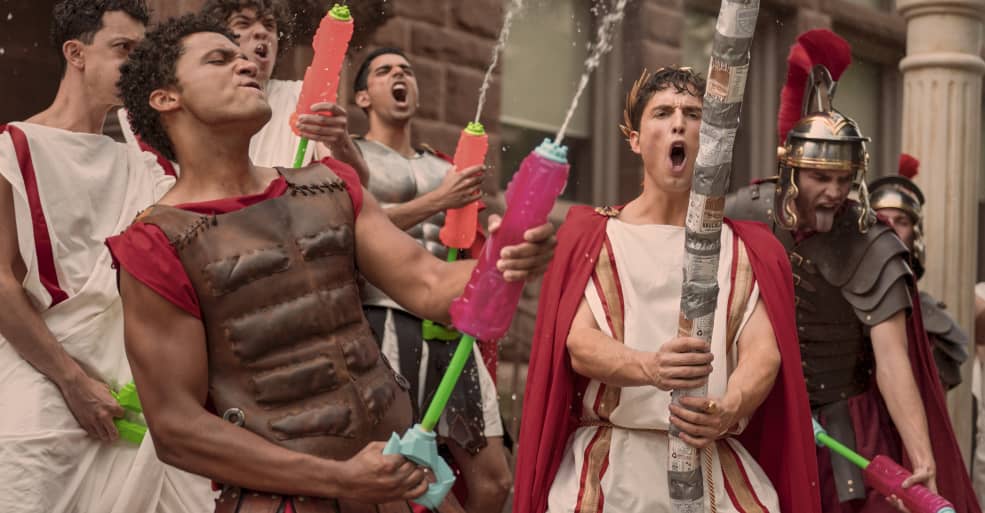24 Books to Get Lost in This Summer
The Atlantic’s writers and editors have chosen fiction and nonfiction to match all sorts of moods.

Summer is, perhaps counterintuitively, the season when many of us find ourselves with our nose constantly in a book. Warm weather and long days stoke the desire to let time and obligations fall away, and to give yourself over to an absorbing novel, history, or memoir. With that in mind, The Atlantic’s writers and editors have selected books to suit every mood or fancy. No matter where you are, you may want to transport yourself to another place, or pick up the novel everyone will be talking about; some weekends all but demand the immersive allure of a cult classic. If you’re already making plans, start the book you know you’ll be reading all summer, or pack a page-turner for your vacation. And for the perpetually curious, any summer day is the perfect time to learn something completely new. Here are 24 books to read before fall comes around.
Transport Yourself to Another Place
Boys’ Weekend
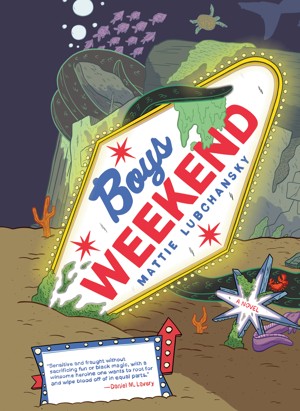
by Mattie Lubchansky
It’s going to be a great getaway, Sammie’s friends promise: Adam’s bachelor party will take place in El Campo, a futuristic bastion of hedonism floating in international waters, where there will be no wives or girlfriends, just good old-fashioned dude time. What could go wrong? Well, for starters, Sammie, the best man, isn’t a man at all—they are newly out as trans, uncomfortably trying to navigate the bro-ish culture of their college friend group. The guys swear they’re all cool with it, but they’re having a really hard time using the right pronouns. Also, El Campo seems kind of … weird? A creepy finance cult is hanging around, everyone is acting a bit off, and Sammie is pretty sure there are monsters in the ocean and doppelgängers slowly replacing their friends. Lubchansky’s graphic novel is vivid and delightful, full of noodly limbs, swirling tentacles, and cartoon blood and guts. El Campo, stocked with ghoulish, hyper-capitalistic entertainment (you can 3D-print and hunt your own clone), straddles the line between hysterical and hair-raising. Sammie’s trip there goes poorly, but it’s a lot of fun to read about. — Emma Sarappo
Isola
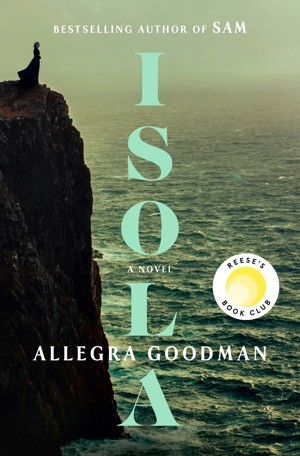
by Allegra Goodman
As a certified hater of cold weather, I surprised myself by spending a recent, bleak February tearing through Isola, a novel about a 16th-century Frenchwoman who gets marooned on an island off the coast of Canada—yes, in winter. One of the most unbelievable things about this book is that it’s based on a true story. Marguerite de La Rocque de Roberval, Goodman’s protagonist, really did travel to New France on a long sea voyage in 1542 with her relative and guardian, Jean-François. She angered him by falling in love with a young man aboard the ship, and in response, Jean-François did, in fact, abandon the pair on an island off the coast of Newfoundland. And Marguerite did actually manage to live there for years, scraping together a life on the hostile tundra. Her story captivated me on several different levels: As a first-time parent going through a brutal first winter with my infant son, I read Isola as a testament to human resilience. As a feminist, I discovered an allegory about the risks many women face when pursuing their desires. And as a participant in corporate America, I found unexpected lessons in managing up. Few other books can take you through Renaissance France, the arctic wilderness, and a thicket of sexist constraints in such an engaging way. — Olga Khazan
The Book of Records

by Madeline Thien
The Book of Records takes place in a postapocalyptic limbo called The Sea, where past, present, and future fold in on themselves and thoughts float in the air like dust. It’s a giant structure—maybe also a metaphysical construct—on an island in the middle of an ocean, full of refugees from some vaguely described ecological and political catastrophe. Our narrator, Lina, is remembering the time she spent at The Sea with her father 50 years ago, when she was a teenager. The pair had interesting company there: Their neighbors were the philosophers Hannah Arendt and Baruch Spinoza and the eighth-century Chinese poet Du Fu. Or maybe these were their spirits; the reader isn’t quite sure. Thien writes beautifully about the lives of these thinkers, and their tales of escape from political or religious oppression end up melding with Lina’s own story: Her father, we discover, was also a dissident of sorts. With The Sea, Thien literalizes a state of mind, the in-betweenness that comes before one makes a major decision. The stories Lina absorbs in that out-of-time place all ask whether to risk your family or your life on behalf of an ideal—whether it’s worth sacrificing yourself for another, better world you can’t yet see. — Gal Beckerman
An Oral History of Atlantis
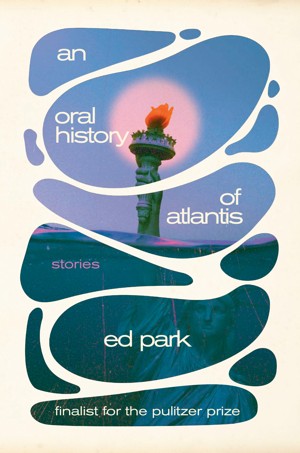
by Ed Park
In his new story collection, Park, the author of two approachably surreal novels, sends his reader on a set of mind-opening trips, drawing absurd connections and inventing wacky situations: A narrator’s girlfriend insists on wearing a “housecoat” at home—a “sort of down-filled poncho with stirrups”; a man turns on his laptop one day to see his ex-wife walking across the screen. These oddball scenarios may make you laugh, but they can just as easily have you questioning your place in the universe. In “Machine City,” an undergrad is fascinated by meta works of art—books within books, smaller paintings depicted within larger ones. He wonders whether the “interior” work is less authentic than the one in which it’s embedded. And if a painting can contain a painter painting another painting, “could we ourselves be paintings, painted by some larger, divine painter—i.e., God?” He can’t stop asking himself these kinds of questions, which won’t help him get into law school. Even when Park writes about mundane experiences—his stories chronicle time spent online, on college campuses, and in post-divorce apartments—he is taking us someplace new. — Maya Chung
Pick Up the Novel Everyone Will Be Talking About
King of Ashes
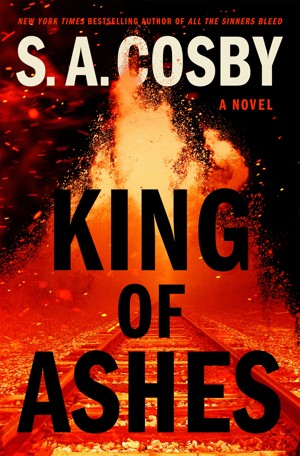
by S. A. Cosby
Cosby is a leading author of rural southern noir, and his latest crime thriller follows Roman Carruthers, a money manager for Atlanta’s Black elite, who returns to the Virginia town where he grew up. Called home after a car crash puts his father in a coma, Roman soon finds out that his younger brother, Dante, is in serious debt to the town’s notorious gang, the Black Baron Boys—and that the car wreck might not have been an accident. Roman quickly descends into a world of criminal schemes as he tries to repay what his brother owes. Amid the chaos, his mother, Bonita, who vanished 19 years ago, is never far from mind. Her disappearance is the most poignant part of an otherwise action-packed novel; Roman and his siblings love their father, but there’s a local rumor that he killed and burned Bonita in the crematorium he owns—and they just don’t know what to believe. The flashy sequences of violence feel apt for TV (Netflix, along with Steven Spielberg’s production outfit and the Obamas’ media company, is working on a series), but the novel’s real draw is the quieter ache of a family torn apart. — M. C.
Katabasis
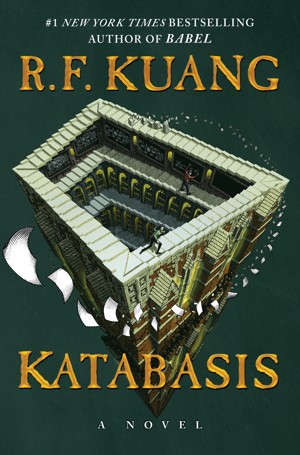
by R. F. Kuang
Kuang’s follow-up to her best-selling literary novel, Yellowface, is cast in the mold of her earlier fantasy work, the Poppy War trilogy and Babel. Katabasis takes its title from the Greek term for a journey to the netherworld, but its protagonist, the Cambridge graduate student Alice Law, has something more ambitious in mind: She’s going to venture to hell, find the soul of her freshly dead thesis adviser, Professor Jacob Grimes, and pull him back into the world of the living. After she does, Grimes can write her a recommendation letter that should guarantee her a tenure-track job in the cutthroat discipline of magic. Yes, Grimes is notoriously awful to his students, but Alice figures that’s a price worth paying, and persists in her plan even when Peter Murdoch, Grimes’s other advisee and Alice’s rival, insists on coming along. Kuang synthesizes ancient mythology and modern academic convention to create an engrossing world in which magic can be studied and mastered like any other science. Alice and Peter’s underworld romp is both a condemnation of the worst excesses of university culture and a celebration of the thrill of learning for learning’s sake. In the end, Kuang reminds readers that there’s more to life—and death—than work. — E. S.
Moderation
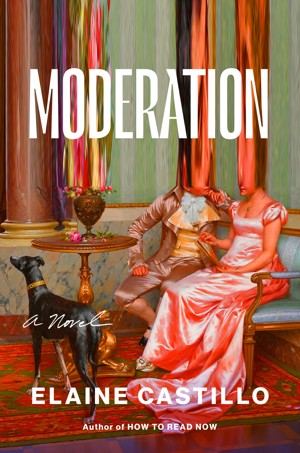
by Elaine Castillo
Girlie Delmundo—not her real name; she adopted it for her high-stress job—is a content moderator at a massive tech firm. Her work involves filtering through a carousel of online horrors so crushing that there are typically three or four suicide attempts among her co-workers each year. Girlie, however, is sardonic and no-nonsense by nature: She’s an eldest daughter shaped by the 2008 recession, when her immigrant family lost everything. The job can’t break her. But her life transforms when she gets a cushy position as an elite moderator for a virtual-reality firm. Suddenly, Girlie is enjoying perks such as regular VR therapy sessions, in which she experiences rare moments of bliss—swimming through cool water, touching the bark of a tree. The new gig is great, at least for a while. (All may not be as it seems there.) Her new boss, William, also happens to be a total stud, and his presence transforms Castillo’s flinty satire of the tech industry into a sultry romance novel. As we watch Girlie’s defenses melt, the book shows a woman slowly surrendering to human experiences that can’t be controlled. — Valerie Trapp
Atmosphere
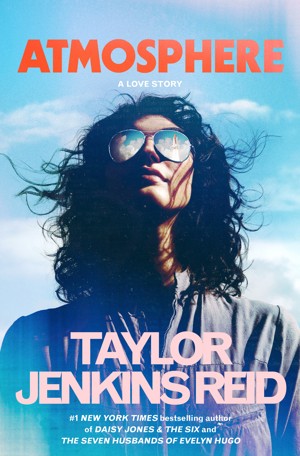
by Taylor Jenkins Reid
Jenkins Reid is best known for love stories that wrap themselves in the glamour of another era: The Seven Husbands of Evelyn Hugo conjures a velvet-and-red-lipstick vision of Old Hollywood; Daisy Jones & the Six peeks into the tense gigs and recording sessions of a Fleetwood Mac–style 1970s rock band. Atmosphere does the same, taking readers to ’80s Houston at the dawn of the Space Shuttle program, where they meet Joan Goodwin, a meek astronomer turned astronaut candidate with few attachments or distractions. She’s happily focused on her career, until another woman in her training cohort, Vanessa Ford, identifies something in Joan that Joan was wholly unaware of—and soon, the two fall headfirst for each other. As they watch Sally Ride, the first American woman in space, soar above them, each knows that they could be next. But when Vanessa’s mission goes awry, Joan, tasked with relaying instructions from the ground to the shuttle’s crew, must save Vanessa’s life while hiding their relationship. The novel will make for suspenseful book-club fodder. It’s also a tender ode to the wonder of both the stars and first love. — E. S.
Immerse Yourself in a Cult Classic
Cassandra at the Wedding
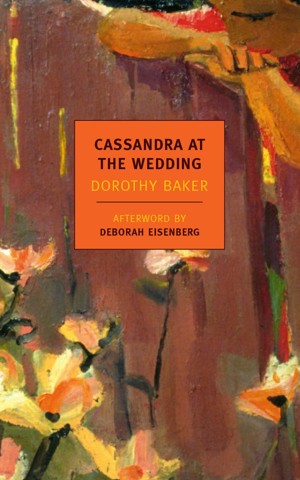
by Dorothy Baker
In March 2022, New York magazine published an article asking, “Why Is Everyone Suddenly Reading Cassandra at the Wedding?” It was a good question. The book—about a brilliant, struggling, self-involved graduate student, the titular Cassandra, who returns home for her twin sister’s titular wedding—wasn’t a hit when it was first published in 1962, or either time it was rereleased, in 2004 and 2012. Only more recently has it enjoyed a renaissance. I will be honest: I can’t comprehend why it’s ever been anything but a sensation. Perhaps, as the New York story suggests, it was ahead of its time—too frank about Cassandra’s queerness, too preoccupied with the complex relationship between two highly intelligent women. (Baker doesn’t spend as much time on the relatively two-dimensional men in their orbit.) But to my mind, the themes are timeless. Baker identifies the slippery edge between love and obsession, the impossibility of really seeing someone when you’re holding them too close, the profound loneliness of knowing that you cannot gain access to anyone else’s mind. Cassandra at the Wedding is smart, funny, and shattering all at once. — Faith Hill
Dolly
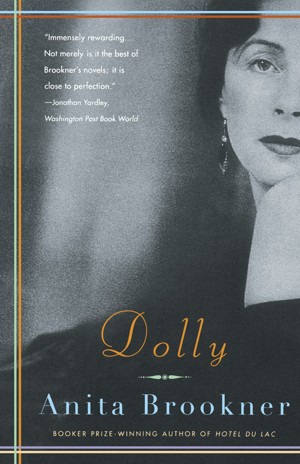
by Anita Brookner
In a lineup of literature’s “unlikable” women, Dolly surely stands tall. She is haughty yet needy, demanding yet desperate to matter to those around her. She is perpetually aggrieved, perma-perfumed. Her niece, Jane, our narrator, bluntly identifies the problem: “Nobody loved Dolly: that was her tragedy. Nobody even liked her very much, and she knew that too.” Brookner is beloved for her intimate, sharp-as-nails character studies; Dolly is not among her best-known novels, but it turns a particularly canny lens on the pettier side of human psychology, unforgettably capturing a woman who desires a much more splendid life—more wealth, more recognition, and, above all, more affection—than the one she’s ended up living. Jagged edges can belie true vulnerability, of course, and as Jane enters adulthood and her relationship with her aunt deepens, she begins to see Dolly differently, as do we. The novel is, ultimately, a superb portrait of flawed charisma, of a woman who is irritatingly present, constantly angling, and utterly magnificent to behold. — Jane Yong Kim
Comemadre
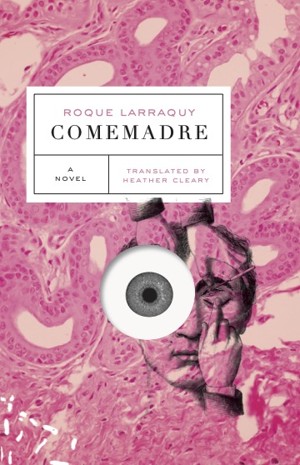
by Roque Larraquy, translated by Heather Cleary
Any cult’s real power lies not with its leader but with its followers, the people who find an individual or a creed convincing enough that they elevate them above anything else in their lives. A book with a devoted fan base follows the same trajectory—and Comemadre, which I have been fortunate enough to discover on the bookshelves of perfect strangers, has the telltale feel of an inside secret. Its dual narrative concerns a set of perverse medical experiments about human consciousness performed in an early-20th-century Argentine sanitorium and, a century later, an outsider artist who carries forth the legacy of these trials in grotesque ways. This eccentric novel—by turns a workplace comedy, a philosophical inquisition, and a smorgasbord of bodily horror—is given life by Larraquy’s electric prose and by the merciless passions of his characters. Every sentence is as deliberate as an explorer who single-mindedly hacks his way through a jungle. Comemadre is a book that dares to imagine what lies at the outer limits of human morality. It’s also sexy and hilarious—a story so fun that you’ll want to pass it on to any reader with a strong-enough stomach, so that they too may be inducted into this fraternity of the bizarre. — Jeremy Gordon
Train Dreams
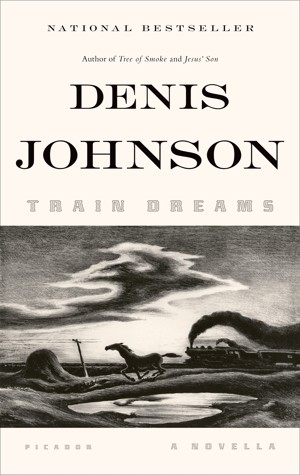
by Denis Johnson
Johnson’s drama of the American frontier is barely a novel; the thin paperback can be started on a hot afternoon and finished by happy hour. Yet it has accrued a devoted following in the nearly 15 years since it was published, because it conjures a great expanse—the mythic West. Its main character, Robert Grainier, works as a contract laborer for the railroads running through Idaho and Washington State. Sweating and straining, he hauls down giant conifers in the region’s old-growth forests. He feels a sweet freedom while riding over freshly laid rail, watching the wilderness blur by through a boxcar’s slats. Train Dreams is not overly romantic about its time and place: In the first chapter, Grainier’s boss orders him to throw a Chinese laborer off an unfinished bridge. A curse later seems to fall upon Grainier. He experiences God’s cosmic vengeance, a cleansing fire racing across the dry landscape. Johnson has a cinematic style, lingering on images. But the novella barrels forward with the locomotion evoked in its title, until the end of Grainier’s days, and the end of the Old West. Give it a few hours in June, and it may hold on to your imagination until August. — Ross Andersen
Start the Book You’ll Read All Summer
The Known Citizen: A History of Privacy in Modern America
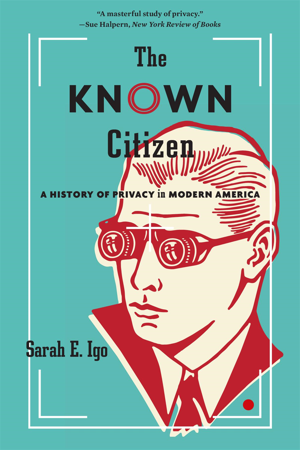
by Sarah E. Igo
A brick-size history of American privacy might not seem to be the stuff of summer-reading dreams, but Igo’s thorough study of surveillance both personal and public is, in fact, an ideal book for leisure. Its topical value is self-evident: Few things are more directly relevant to this moment than matters of privacy and its erosion, and Igo’s excavations of the past expose the concerns of our present. But The Known Citizen’s pleasure-read status, I promise, is just as earned. Igo, a history professor at Vanderbilt University, weaves disparate fields—case law, criminal history, sociology, philosophy—into a story that is somehow as rollicking as it is illuminating. You’ll learn from The Known Citizen. You might be tempted to chat about it with your fellow sunbathers. You might even find yourself wishing that the book were longer than its 592 pages. — Megan Garber
Paradise Bronx: The Life and Times of New York’s Greatest Borough
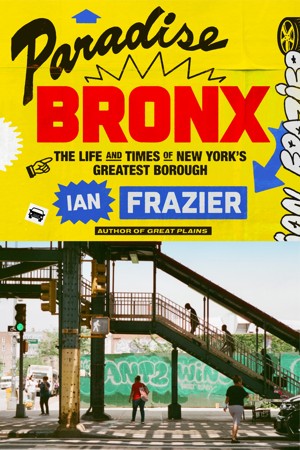
by Ian Frazier
“I am always going on about plaques,” Frazier writes drolly in his plainspoken yet magisterial survey of the Bronx, a long-neglected borough whose deep history is unacknowledged even by many of its champions—hence its lack of plaques. Among the sites where Frazier would like to nail one up: the childhood homes of John F. Kennedy and Sonia Sotomayor; the playground where hip-hop found its form; a glacial-erratic boulder that barely escaped Robert Moses’s bulldozers; the scene of a murder that led to a 10-year gang truce. Frazier has previously cataloged famous middles-of-nowhere, including Siberia and the Great Plains. Here, he sets his eye on the tip of a hilly peninsula forever in between many somewheres—mainland and harbor, suburbs and cities, British territory and rebel strongholds, building booms and leveling fires. What remains consistent is the splendid topography of Frazier’s prose, and the sense throughout his work that there are, in fact, no uninteresting places, just uninteresting writers. Over nearly 600 pages of tall tales, epic cookouts, and urban-planning nightmares, Frazier shows himself to be the kind of tour guide you’d follow anywhere. — Boris Kachka
The Emperor of All Maladies: A Biography of Cancer
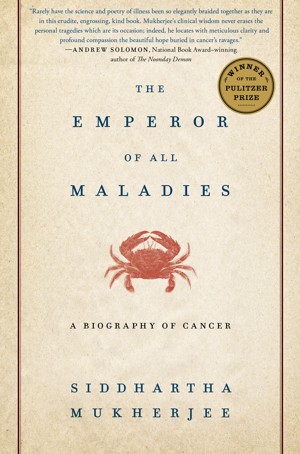
by Siddhartha Mukherjee
About 2 million Americans will receive a cancer diagnosis this year, but the occurrence of the disease can often feel random—and terrifying. After two people I love had brushes with it in recent years, I found great solace in this empathetic, informative history, which reads less like a morbid compendium and more like a high-voltage mystery. Mukherjee, an oncologist and a science writer, sketches a close-up, inquisitive portrait of an illness that is, as he puts it, “built into our genomes.” Across hundreds of pages, Mukherjee offers the gift of historical perspective: We learn of Imhotep, an ancient-Egyptian physician who wrote of tumorous lumps on a patient’s breast around 2625 B.C.E. We read about 19th-century doctors armed with leeches and scientists who used textile dyes to develop chemotherapy; we’re then introduced to 1970s American lobbyists hell-bent on finding a cure. Mukherjee’s gripping descriptions of ingenious cancer research stand out today, as the Trump administration makes cuts at the National Institutes of Health and National Cancer Institute. The Emperor of All Maladies is expansive enough to offer something worthwhile to survivors, the bereaved, and newcomers alike. Dipping in and out of this book over a few months might inspire a new reverence for the mysterious human body. — V. T.
Lonesome Dove
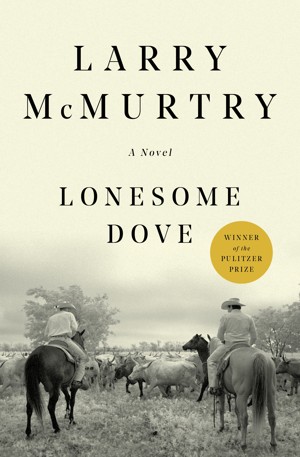
by Larry McMurtry
If you aren’t a fan of Westerns, please make an exception for Lonesome Dove. The 800-page epic starts slowly, as McMurtry introduces readers to a couple of former Texas Rangers and their bumbling ranch hands in 1870s South Texas. But once the crew sets out on a fateful cattle drive to Montana, confronting the hazards (both elemental and human) of the still-wild West, the novel becomes a dizzying adventure, pulling more and more characters into its wide, braided narrative. And it’s those people, above all, who will keep you coming back. Even as he pushes the plot along, McMurtry gives them surprisingly rich interiority and complicated, deeply human motivations. Years ago, I spent an unhappy summer in New Orleans, with no car and little social life, and I passed the time with Lonesome Dove. Every afternoon was a countdown to the moment when I could go home and dig back into the story: I just couldn’t wait to find out what would happen to all my friends on the trail. — Gilad Edelman
Bring a Page-Turner on Vacation
Be Ready When the Luck Happens
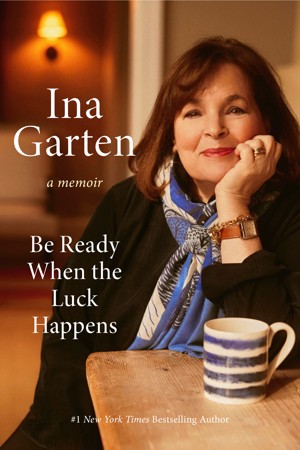
by Ina Garten
A lounge chair beside a pool in Florida, where I was vacationing with my family last winter, was the perfect place to devour Garten’s celebration of luxury, good food, and togetherness. This memoir is a record of a life spent prioritizing adventure over prudence, indulgence over temperance. Garten buys a store in a town she’s never visited, purchases a beautiful house she can barely afford, and wishes her husband well as he takes a job in Hong Kong while she stays behind. Her brio pays off, of course: That food shop was a success, and she went on to write more than a dozen cookbooks, become a Food Network star, and make pavlova with Taylor Swift. The book is escapist in the way that good, breezy reads often are. It was also, for me, inspiring: Be Ready When the Luck Happens gave me a bit of permission to imagine what I would do if I were the sort of person who embraces possibility the way Garten does. As I basked in the pleasant winter sunshine, I found myself thinking, What if we move to Florida, or to Southern California, or some other place where it’s warm in January? I haven’t followed through—vacation fantasies have a way of fading as soon as you get back to reality. But I was invigorated by imagining that I might. — Eleanor Barkhorn
The Hole
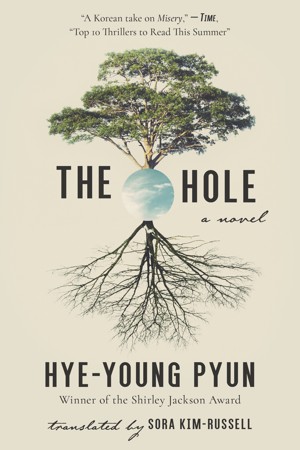
by Hye-Young Pyun, translated by Sora Kim-Russell
The less you know going into The Hole, the better; don’t even read the book jacket. I promise you’ll still be walloped by every revelation in this story, from its opening scene of the narrator Oghi looking up, confused and groggy, at a fluorescent ceiling, to its last, when he stares up at a dark sky. In between is a slow accumulation of quiet disturbances, as Oghi, an insecure middle-aged academic, moves from one physical location to another and then from memory to memory to deeper memory. He revisits his relationships with his wife and mother-in-law, who are the two other pillars of the novel (though never addressed by name). Settings of comfort—a bedroom, a flower garden, a backyard barbecue with friends—turn into sites of distress. Banal scenes later flood with meaning. The Hole uses simple prose to reach the edges of Oghi’s trapped mind, dropping clues and red herrings about its characters’ mistakes. What has Oghi done with his life? What has Oghi done, exactly? Dive into this claustrophobic book when you feel freest, momentarily untethered from responsibility, perhaps looking at an infinite horizon. You’ll feel the contrast in your bones. — Shan Wang
Great Black Hope
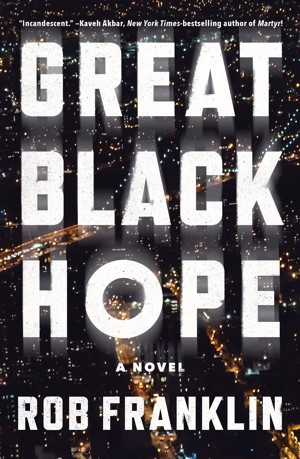
by Rob Franklin
At the outset, the premise of Franklin’s debut novel just sounds like a typical Labor Day weekend in Southampton: David Smith is arrested for possession of cocaine, and his father—a former university president also named David—hires a local lawyer to help clear his record. But as “the David Smiths” embark on their mission, the stakes escalate. The body of the younger David’s socialite roommate, Elle, was found near the East River three weeks earlier, and the investigation into her death has stalled. His best friend, Carolyn, is busy juggling drug binges, sobriety programs, and ill-advised affairs. And most of the players, including the Davids, are members of an American Black elite whose privilege feels precarious, and whose children, Franklin observes, either “adopt the twice-as-good ethos of their parents’ generation or rebel and in that rebellion sacrifice themselves.” The author bakes the subgenres of party-monster satire, tabloid procedural, and Black coming-of-age into a richly layered inquiry into how to live a good life. If Tom Wolfe, Jay McInerney, and Margo Jefferson somehow collaborated, this might have been the delightful result. — B. K.
Stop Me If You’ve Heard This One
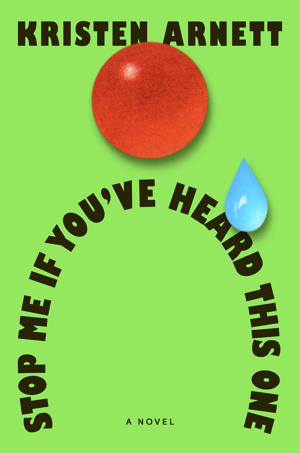
by Kristen Arnett
Cherry Hendricks wants to be a clown—well, a successful one: She dreams of reliable, full-time work where she can take her craft seriously, instead of cobbling together pet-store shifts and birthday parties in the wealthy neighborhoods of Orlando, Florida. Unfortunately, she has yet to hit it big, so her days are defined by her troubles with money and her emotionally distant mother, problems made only worse by the death of her brother. In between her shots at clowning stardom, Cherry makes impressive chains of bad decisions—most of them being illicit hookups with older women. But her passion for her art is unwavering no matter what new mess she puts herself in, and key to the novel’s charm. Cherry’s serious treatment of clownery transforms shiny pants and greasepaint from punch lines into the venerated tools of her trade. It allows Arnett to develop moving ideas about identity, performance, and comedy—as well as how it feels to love something (or someone, or somewhere) that doesn’t necessarily love you back. — Elise Hannum
Learn Something Completely New
A Day in the Life of Abed Salama
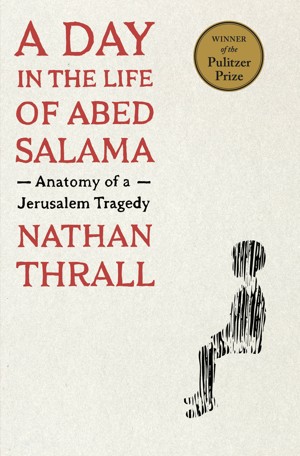
by Nathan Thrall
Thrall’s extraordinary, Pulitzer-winning work of narrative nonfiction describes a gut-wrenching tragedy in vivid, minute detail: In 2012, an 18-wheeler traveling down a rain-soaked highway outside of Jerusalem collided with a school bus full of Palestinian kindergartners. The bus flipped over and caught fire; the children were trapped inside, and six died, along with one of their teachers. Thrall, an American journalist based in Jerusalem, takes as his main character Abed Salama, a Palestinian man from the West Bank whose 5-year-old son, Milad, was on the bus. The author begins by narrating Abed’s life story in order to illustrate how the daily indignities of Israeli occupation have accrued over decades, affecting the family’s choices about where to live, work, and send their children to school. By the time Thrall gets to the bus crash, the conditions that made the accident possible—and deadlier—are obvious: The bus was traveling on a circuitous, traffic-choked route to a faraway location because of restrictions on Palestinian movement; even though the disaster happened seconds away from an Israeli settlement, almost half an hour went by before any help from that town arrived. This humane, sensitive account manages to convey infuriating social realities while never losing sight of the lives at the center of the story. — Clint Smith
The Arm
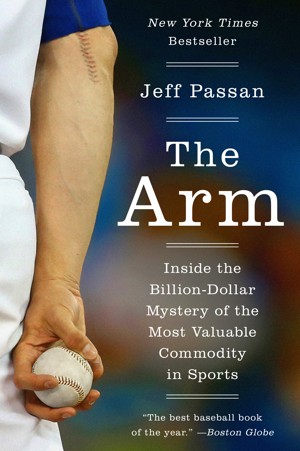
by Jeff Passan
The future of baseball is the future of elbows. Hurling a ball 100 miles an hour, hundreds of times a week, is really, really tough on the ligament that holds the arm together—so violent that more than a third of Major League pitchers have had what’s commonly known as Tommy John surgery, named for the first player who underwent it. As Passan, a longtime baseball columnist, points out in this assiduously reported, viscerally rendered study of baseball’s Tommy John epidemic, pitchers’ arms are among the most valuable assets in all of professional sports. Fixing them is equal parts scientific miracle, big business, and human tragedy—a gnarly, technically complex procedure that requires months or years of painful recovery. Elbows are also the site of a reckoning for the sport: As pitchers throw harder and harder, they’re burning out faster and faster, to the degree that some of the sport’s greatest talents aren’t actually playing much at all. Passan follows his story from the field to the operating room, focusing on the Little League aces wrecking their arms at the age of 13 and the baseball executives trying to find a way out of the game’s slow-moving crisis. For fans, it is a reminder of the fragility of the game we love; for every reader, the book makes clear all that baseball demands—flesh and blood, sutures and scalpels. — Ellen Cushing
Dark Laboratory: On Columbus, the Caribbean, and the Origins of the Climate Crisis
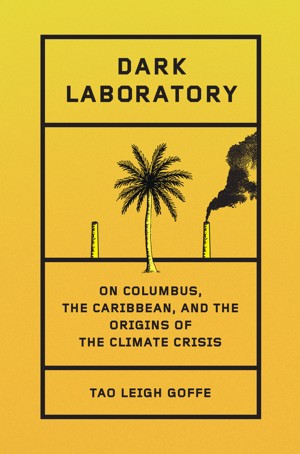
by Tao Leigh Goffe
In this ambitious book, Goffe advances a simple but provocative thesis: Climate change began not during the Industrial Revolution, but back in 1492, when Christopher Columbus landed in the Caribbean. As a result of European settlement, the region came to function as what Goffe calls a “dark laboratory” of exploitation and extraction, which revolved around chattel slavery. The economy built atop the practice “irreparably scarred the natural environment”: Deforestation, undertaken to create wide, flat swaths of farmland, released carbon; growing a single cash crop such as sugarcane on the same land year after year weakened soil; diverse flora and the “multitude of medicines and materials critical to Indigenous life” were eliminated. This is an urgent and frequently grim work, but it is also hopeful. From corals, which “have an incredible power to self-regenerate when damaged,” we can learn about rebirth and resilience. From present-day island residents, we can draw lessons on the “art form” of climate survival. And Goffe is relentlessly engaging, leaving the academy’s dusty archives and traveling from Jamaica to Sardinia, Hong Kong to Hawai‘i, to discover better ways to live. — M. C.
Panic and Joy: My Solo Path to Motherhood
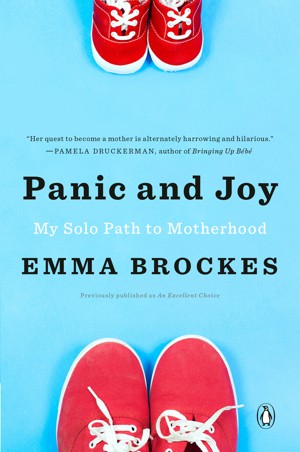
by Emma Brockes
At 37, Brockes still wasn’t sure whether to become a mom. She wasn’t itching for parenthood, her work as a journalist wasn’t wildly lucrative, and she had a girlfriend she wanted to stay with but not have kids with. Yet she knew that, pretty soon, not choosing would be a choice in itself. This is how Brockes began her journey into America’s fertility business, which she recounts from a Brit’s perspective: alternately horrified, bemused, and awed; marveling at an industry that seems to be both a racket and a miracle. Panic and Joy is also the story of how she ended up a single parent who’s not single, raising twins one floor down from that girlfriend and her child. I learned a lot about sperm donation, intrauterine insemination, and how fertility laws differ in the U.S. and the U.K. But I think what I’ll retain the most is the great sense of comfort and relief that Brockes stirred in me. What a pleasure to read writing about motherhood that isn’t deeply forbidding; to observe someone forming the family she wants, not the one expected of her; and to be handed a kind of model for how to do just that—not a prescriptive parenting guide, but a reminder that people can care for one another in a lot of different, imperfect, achievable ways. — F. H.

























